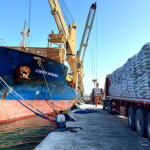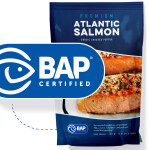A new seafood task force, formed in the wake of Brexit, met for the first time on 12 February, drawing together senior political figures, industry representatives and U.K. government officials, to try to solve ongoing problems with exports to European Union markets.
Chaired by U.K. Government Minister for Scotland David Duguid, the virtual meeting was attended by U.K. Environment Secretary George Eustice, and Scotland Cabinet Secretary for Rural Economy Fergus Ewing.
The Scottish Seafood Exports Taskforce included members of the catching, processing, and exporting sectors. Her Majesty’s Revenue and Customs and the U.K. Government Border Delivery and Protocol Group were also represented.
“This taskforce is about developing solutions and delivering action rapidly. It is not a talking shop and we will provide evidence of delivery,” Duguid said.
Eustice said other U.K. government working groups to tackle immediate problems would continue to operate and support businesses to adjust to the new requirements and troubleshoot where problems occur such as issues with export health certificates (EHCs) and customs declarations.
During the meeting, the movement of mixed loads of small consignments was discussed and the variation in time taken for loads to be cleared, with constructive discussions on how practical solutions could be arrived at to ease the flow of goods.
“The spirit of cooperation between all parties was good to see and my officials will now drill down to identify areas for rapid action,” Duguid said after the meeting. “The next task force meeting is in a fortnight but our engagement with industry continues on a daily basis, as does our work to speed world-class Scottish seafood from port to plate as smoothly as possible.”
Ahead of the meeting, Ewing said streamlining export processes, fixing IT systems, and resolving trade issues with the E.U. must be urgent priorities for the task force.
“The seafood sector has faced six weeks of relentless bureaucracy and barriers to trading with the E.U. which have been imposed by a damaging and last-minute Brexit deal,” Ewing said. “These are not just ‘teething problems’ this is an entirely new way of working that is a direct consequence of the way the U.K. government handled Brexit and we must look at ways to minimize these impacts. This is time-critical and the task force must look at how we can remove barriers to trade, resolve some of the export issues businesses have faced with scallops and cockles, mussels, and oysters, and streamline processes.”
In order to overcome the difficulty, Ewing said, the “full engagement of U.K. departments whose systems and processes are the source of much of the frustration encountered by fishermen and processors” is required.
Last week, the U.K. government’s GBP 23 million (USD 32 million, EUR 26.3 million) Seafood Disruption Support Scheme opened for applications to businesses that suffered a financial loss because of delays related to the export of fresh or live fish and shellfish to the E.U. during January.
Photo courtesy of othdst/Shutterstock







